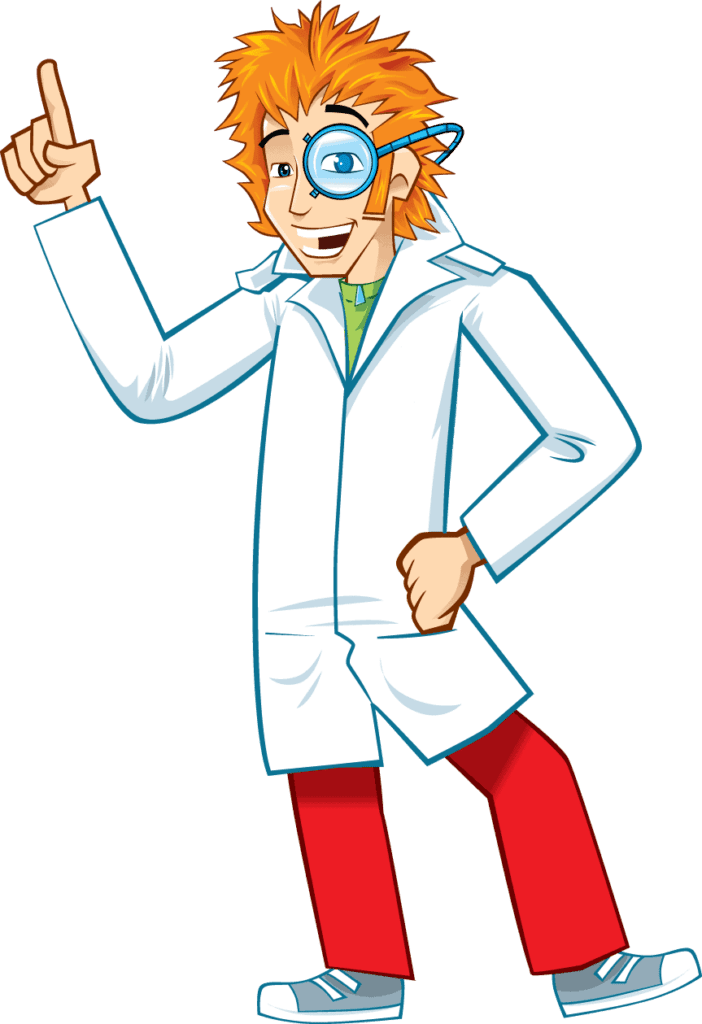Who is Professor Hallux?
Professor Hallux is a scientist who is really curious about everything to do with the human body!
With the help of Nurse Nanobot he wants to find out everything he can about medicine.
We’re going to be exploring Professor Hallux’s Map of Medicine to help us learn all we can about it!

What is a doctor?
A doctor is someone who has been specially trained to figure out what might be wrong with you and then treat it with medicine or surgery.
Have there always been doctors?
Doctors have been around for as long as humans have been living in groups, as far back as the stone age!
Although doctors back then didn’t have any fancy medicines or machines to help them. They also didn’t know as much about medicine and the human body as we do now so a lot of treatments back then probably didn’t work very well.
How do you become a doctor?
To become a doctor you have to study for many years at university and hospitals. Once you have done that you are allowed to practise medicine.
This is a great thing as you don’t want just anyone to say they’re a doctor and treat you, you want someone who knows what they’re talking about!
This hasn’t always been the case though. Until about 150 years ago you didn’t need any medical training to be considered a doctor, you just had to say you were one and that was it! That was unless you were a woman, back in those days women all over the world weren’t allowed to be doctors which is just silly!
What kinds of doctors are there?
There are lots of different types of doctors that all have different jobs. There is so much to know about medicine and the human body that not everyone can know everything! This is why you have lots of different types of doctors that are all very good at their special area. Here’s a list of some of them…
- Anaesthetist – These are the doctors that put people to sleep before surgery.
- Emergency medicine doctor – These doctors treat people who need emergency treatment. These are the doctors you see if you go to the Accident & Emergency department of a hospital.
- Opthalmologist – Eye doctors.
- Paediatrician – These doctors treat children.
- Cardiologist – These are heart doctors.
- Surgeon – These operate on people.
- GP – These are the doctors at your local doctors office.
GPs
GP stands for General Practitioner and this is the doctor that you visit when you’re feeling ill.
They work in a place called a surgery or a practice instead of a hospital.
You make an appointment to see a GP when you’re ill and they will try and make you better.
How does a GP make me feel better?
The first thing they have to do is figure out what might be wrong with you.
To do this they start by asking you questions about how you feel so you can tell the GP exactly what you’re feeling.
Then they will check their computer to see your medical history. This is just a record of everything that’s been wrong with you in the past. They need to do this so they can see if you’re suffering from something new or if it’s related to something you’ve had before.
Next they might examine you to see if they can see any clues about what’s wrong with you that you don’t know about.
Once they have done all of this the GP should know what’s wrong with you and be able to give you medicine to treat it, or they might refer you to a specialist. This is when they make you go to a doctor who knows more about the issue you’re having and so they will be able to treat you better.
How does a GP examine you?
They use special equipment to examine what ever you say is wrong with you. For example, if your ear hurts they might need to use a tool that lets them look in your ear.
Here are some of the tools GPs use…
- A stethoscope – this lets the doctor hear your heartbeat and the way your lungs sound. Doctors know just how healthy hearts and lungs should sound. If yours doesn’t sound quite right, the doctor will want to investigate further.
- An otoscope – this lets doctors look in your ears, nose and throat so the doctor can get a good look at yours and the light helps spot any problems, like fluid in your ear that could be an infection.
- An ophthalmoscope – this lets the doctor look in your eye and see the retina, the light-sensitive part of your eye that sends messages to the brain. Though the doctor is shining a light in your eye, try to keep your eye still so the doctor can get a good look.
- Rubber hammer – doctors might bop you with this because it lets the doctor test how well your nerves are carrying messages in your body. When your reflexes respond to the hammer, the doctor knows your nerves can do the important job they have — carrying messages from the brain and spinal cord that tell your body what to do.






